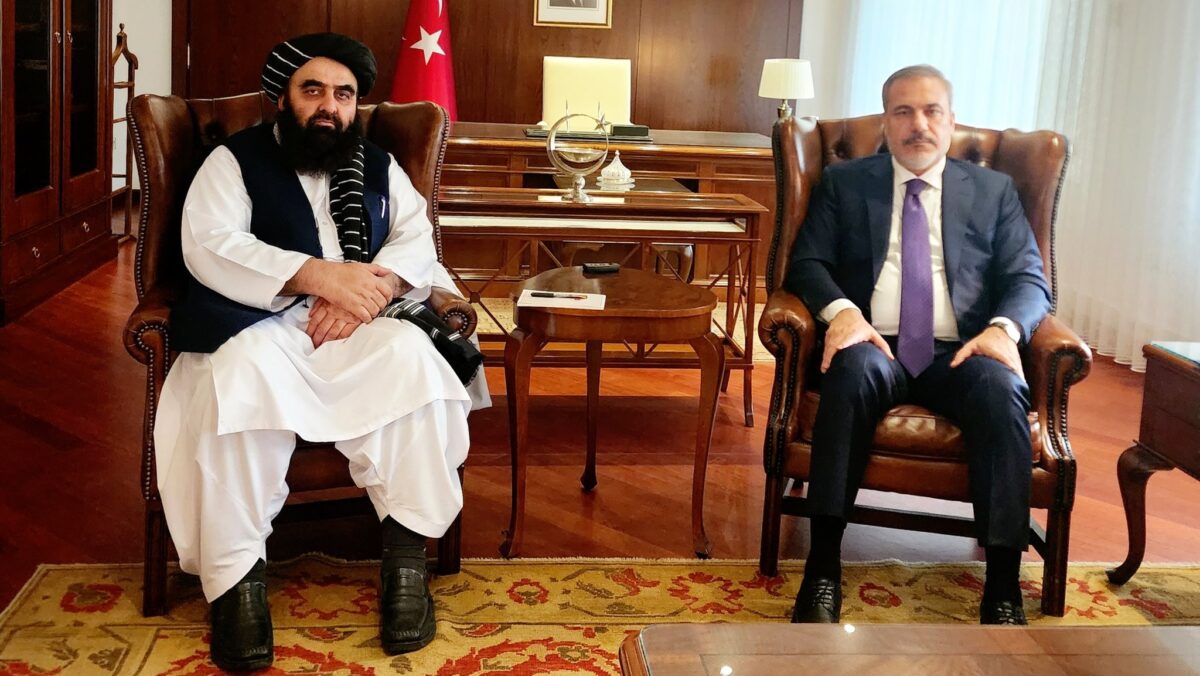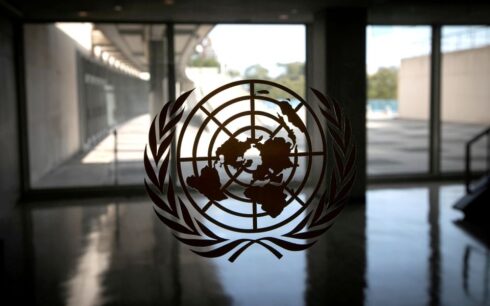An assessment by Amu shows multiple Taliban officials, subject to travel restrictions imposed by the UN Security Council, have been observed embarking on foreign trips. Notably, Amir Khan Muttaqi, the Taliban’s acting foreign minister, who is under UN sanctions, has recently undertaken several international visits.
At least 14 members of the Taliban’s leadership are on the UN Security Council’s terrorism blacklist, including both acting deputies for the Taliban’s chief minister.
Official records verify Muttaqi’s journey to Russia on September 25, 2023, where he participated in the Moscow Format. Subsequently, on October 3, he ventured to China for the Trans-Himalaya Forum for International Cooperation. Most recently, on October 29, he was spotted in Turkey, engaging in discussions with the Turkish foreign minister.
Political analyst Farooq Azam shed light on the subject of these sanctioned Taliban officials’ travels, explaining that the hosting countries are required to notify the UN Security Council and obtain temporary travel permissions.
Azam emphasized that Muttaqi’s recent trips to Russia and Turkey adhered to these established protocols.
Abdul Ghani Baradar, the Taliban’s deputy chief minister, followed in Muttaqi’s footsteps. He embarked on his own journeys, visiting the UAE and Turkey in August of the same year. In December 2022, the Taliban’s acting defense minister Yaqub Mujahid was witnessed in the UAE. Additionally, Abdul Latif Mansour, the Taliban’s acting minister for energy and eater, traveled to Uzbekistan to solidify an electricity agreement with Tashkent.
While the Taliban portrays these travels as significant strides in their international engagement efforts, the global community remains cautious. Many emphasize that such interactions do not confer legitimacy upon the Taliban regime, particularly in light of its severe human rights violations.
Advocates for women’s rights implore countries hosting Taliban officials to remain vigilant regarding the well-being of Afghan women and girls living under the Taliban’s rule.
Binazeer Mohammadi, a women’s rights advocate, expressed deep concern for the fate of women in Afghanistan since the Taliban’s return to power in 2021.
“When Afghan women advocate for their rights, they are often met with detention and mistreatment by the Taliban. Unfortunately, the world appears to be turning a blind eye to the plight of Afghan women,” she noted.
Recently, a diplomat from Afghanistan meanwhile voiced disappointment in the international community’s approach to the Taliban.
Further underscoring these concerns, Thomas West, the US special envoy for Afghanistan, emphasized at a UN meeting in September the global unity against the Taliban’s “oppressive measures” toward Afghan women.
West noted that Muttaqi’s international travels were limited, with only two such trips in the past year.





